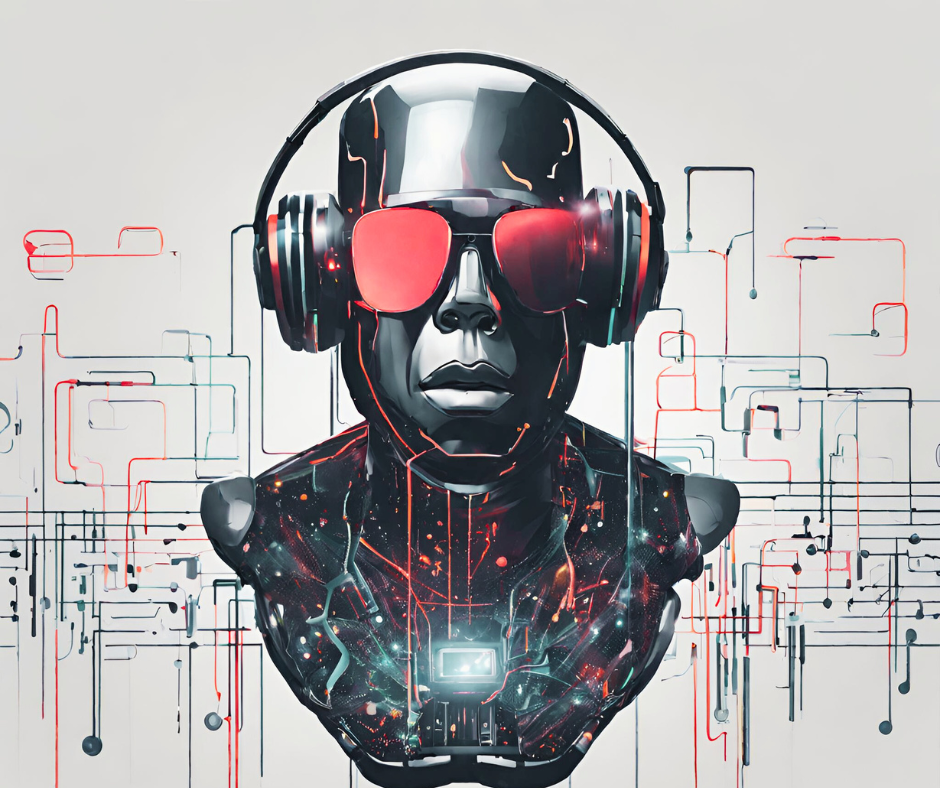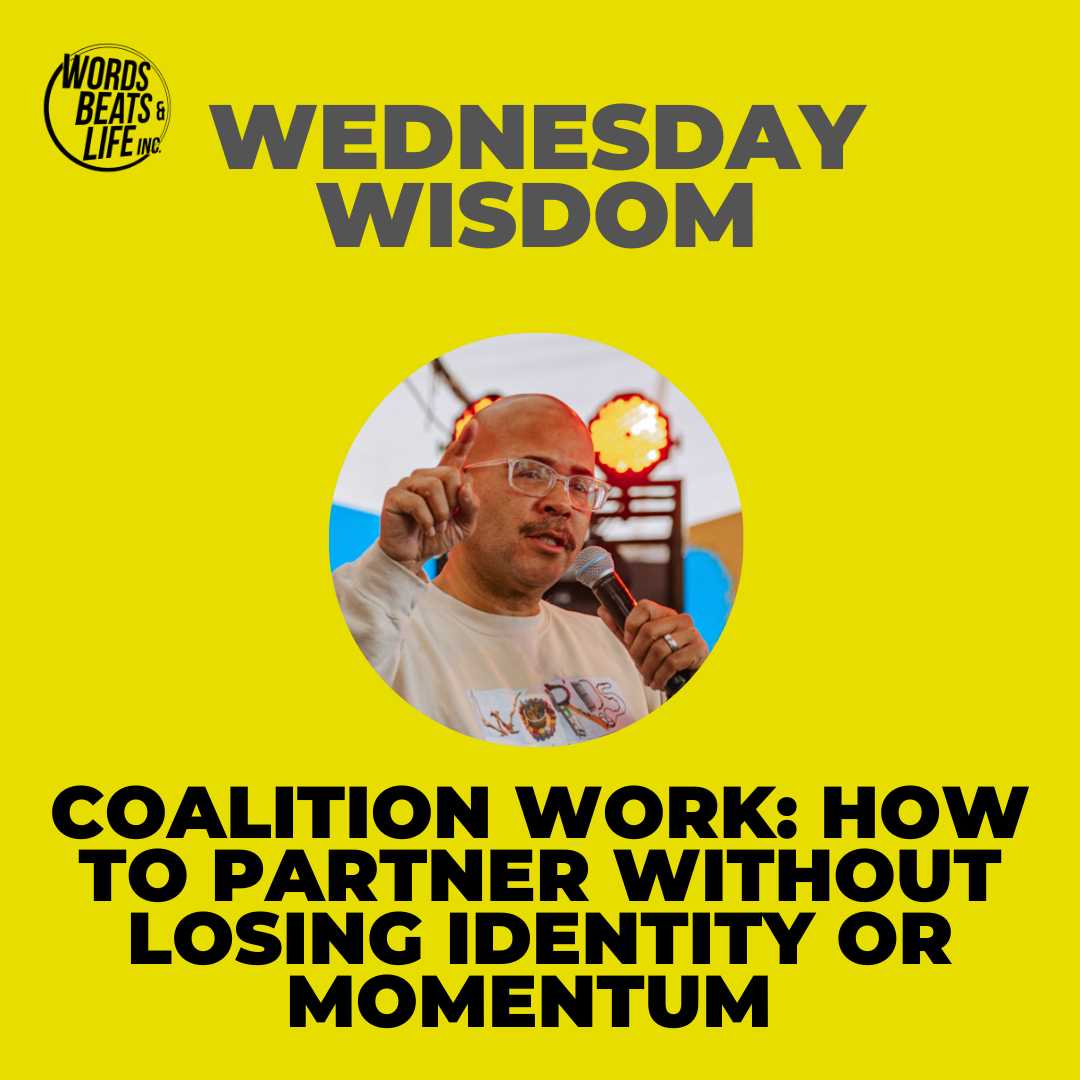AI Bionix: Exploring the Impact of AI on Music
From Biggie to bots, we discuss how machines are changing the creative process for artists.
Art? Official? Intelligence? AI is here. What does it mean for human expression?
Drake rapping Ice Spice’s “Munch.” Biggie rapping Nas’ “New York State of Mind.” Timbaland making a brand new song with the Notorious B.I.G. and these are just the most recent ones. You can’t put Pandora back in the box — we are in the era of AI! The Terminator and the Matrix warned us about the rise of machines, but, all jokes aside, technology has begun to catch up and move past our own human capacity. The idea of “machine learning” in particular in the music industry with daws (digital audio workstations) isn’t a new phenomenon, but AI is on a different level. The simplest and dirtiest explanation of how AI works, whether it’s reincarnating dead artists’ voices or generating “original” work from suggestions, is that the program is absorbing examples, different sets of “data,” learning the aesthetics and then reproducing “new” content based on studying and mimicking what is within the known data sets. As of now, this means there is a human operator at the wheel, writing the “algorithms” for the AI to follow. However, it’s the machine itself that is generating the work, and really doing so by copying or manipulating existing aesthetics and patterns, reconfiguring them in new ways. In the case of voices, the process is similar but more complex (and more troubling) as it’s literally imitating a human being with uncanny accuracy.
My first introduction to AI actually was through visual art, using a free program called Lensa. Lensa scours millions (maybe billions) of images and designs unprotected on the internet and then “borrows” those aesthetics to recreate the images you feed it. For free, I received about 100 images, redrawn in cool and interesting styles. I have to admit, some of the new images were very cool-looking and beautiful. It was only after the fact that I learned how this “AI” created the work. It immediately raised all types of ethical questions.
I’ve also tried ChatGPT. Similarly, you ask ChatGPT to generate at random a variety of different things. You can ask it for a curriculum or to write a paper or a song. The premise is essentially the same: you feed it a command and then it scans data sets based on the instruction, then reprograms the information into something “original.” Again, the results are frighteningly impressive and, to a casual listener, viewer or reader, it’s almost impossible to tell if this was something a human wrote or not. While the most dangerous applications of this process are extra scary (think of falsifying documents or reports in court or impersonating someone’s voice for a kidnapping), the simple reality is that this technology in essence makes the artist not necessarily obsolete but absolutely expendable and devalued.
As the technology learns, develops and improves, it will not only be harder to tell humans from computer creative production but theoretically the machine will not need “data sets” as a base in order to create and produce. Before we even get to that episode of the Animatrix, however, consider in the immediate present that first, utilizing others’ intellectual and creative property as a template without consent is at best unethical. Second, what does it mean for an artist to compete with a machine that can generate multiples of what a human can do at a faster rate and without rest or breaks? The American Scientist, an online publication, recently cited Christie’s auction of an AI-generated painting for $432,500. Do you have to pay AI? Does AI need benefits? You can see where this could go.
Pro-AI folks are calling for the industries in which artists, curators and designers work literally to survive to ensure that humans and human value are at the forefront. The question is: where in human history have corporate interests earnestly considered the needs of workers and laypersons on the way toward (infinite?) profit? What is the track record of labels, marketing companies and production houses fairly compensating people for their ideas and output? What we do know is if we look at the world of tech in general, compared to the laws and legislation around it, we never seem to catch up. By the time a regulation is secured, the market and the industry have already capitalized and solidified the standards and norms. Even worse, technology will have advanced to create a new loophole, often by the time any of the regulations or laws are even in place. For all of the think pieces around streaming ripping off artists, and calls for services such as Spotify to give a more equitable share of the profit, that boat has long since sailed. Legislation around the use of bots in social media and streaming has been around for years but isn’t fully enforced or even adequate considering how bots are now being used. What makes us believe that companies who can see the mass financial benefits of this technology at the expense of us will act in good faith, at the very least, such that the people who make, build, design and create the tech share in that wealth? The answer is that it’s not likely to happen.
Right now, the world of AI is wide open and as any tool is useful when applied the way it was intended and safely. Unfortunately, we are already seeing that this new frontier is running rampant and getting away from us. Before we even have a chance to fully consider how to best protect the communities that will suffer, there is already a negative impact and a net loss for them in this new era. In a more existential sense, what does this mean for the human imagination? As we build and refine these tools, to “better” our world, our output and our production, will we become lazy to the point where we just “let the machine do it”?. How will we balance imagination and human ingenuity with a technology that with every passing minute looks to exceed our own human abilities? Good artists borrow and great artists are... AI? To be continued.





